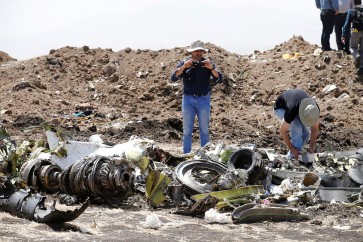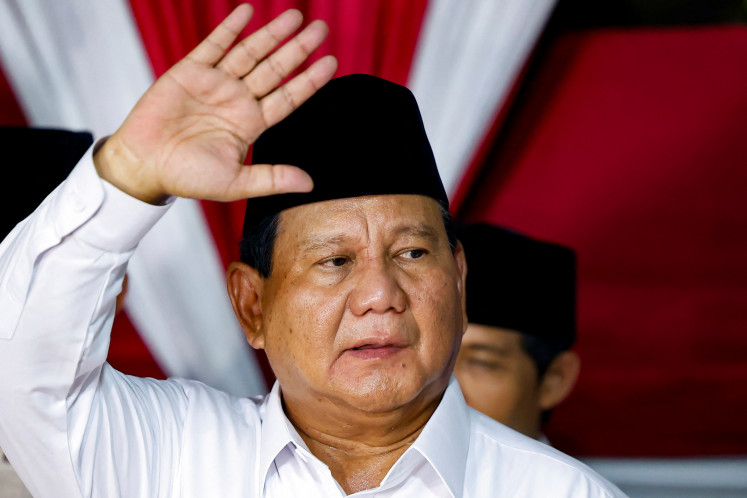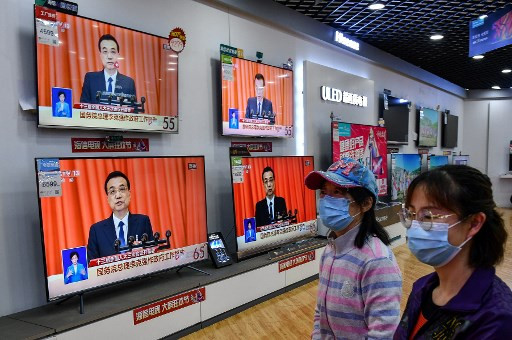TNI: Recognizing progress and shortcomings
Despite the postponement of US President Obama’s visit to Indonesia, the debate regarding full restoration of military cooperation between Indonesia and the US has re-emerged
Change Size

D
espite the postponement of US President Obama’s visit to Indonesia, the debate regarding full restoration of military cooperation between Indonesia and the US has re-emerged.
One main issue of contention is whether the Indonesian Military (TNI) is still able to act with impunity in committing gross violations of human rights, or whether military cooperation can be restored on the basis of reform within the TNI and its increased respect for human rights.
The TNI is increasingly engaging in human rights trainings, and respect for human rights now extends to its doctrine and tactics.
Military cooperation with the US has been limited due to the “Leahy Law”. This piece of legislation prohibits assistance to foreign military units “if the Secretary of State has credible evidence that such unit has committed gross violations of human rights” and that the state in question has not been “taking effective measures to bring the responsible members of the security forces unit to justice”.
A system of vetting has accompanied this law, where the records of both individual officers and military units are assessed to ascertain whether they have committed human rights violations in the past. Those whose record is found to be questionable are barred from taking part in any training provided by the US.
US military support and training to the TNI will thus be barred until “all necessary corrective steps have been taken” against units or individuals that have a record of committing gross violations of human rights.
Thus, what bars US military assistance to Indonesia is not so much whether the TNI today engages in human rights training and asserts the importance of human rights, but rather the question of impunity for past human rights violations: Have past human rights violations been properly dealt with? Have perpetrators been identified and brought to justice? Have victims have been sufficiently compensated? Has there been an institutional admission of guilt?
“Retired officers still seem able to influence their former units and may even be able to employ military capabilities outside the chain of command.”
Since 2007, the Indonesia Program at the Norwegian Center for Human Rights has been involved in providing training in human rights and humanitarian law to Indonesian Army units including the Special Forces (Kopassus) and the Strategic Reserve Command (Kostrad).
Little doubt getting involved in such cooperation might be deemed controversial; particularly if it creates the impression that a human rights institution such as ours through these trainings is giving the TNI a stamp of approval.
However, “the proof of the pudding is in the eating”, the English proverb says, and so also with TNI reform and human rights compliance. It is not the number of hours cadets spend in human rights classes that counts, it is their performance in the field during military operations. To this end, in cooperation with the TNI, we run human rights trainings that focus on applied knowledge and best practice in challenging situations.
TNI (or then ABRI) was an intrinsic part of the political regime that fell in 1998. It should therefore not surprise anyone that early in the reformation period TNI was seen as a reluctant reformer.
However, little-by-little reforms have taken place, and the TNI should be commended for these reforms.
The removal of seats specifically allocated for the TNI in the DPR was an early and important step towards depoliticizing the TNI, as were clear statements of impartiality from TNI commanders during general elections. Separating the police from the military, and abolishing the dwi-fungsi doctrine and the Sociopolitical Affairs Section of the Army were also important steps towards reform.
The position of armed forces commander in chief has rotated between the three service branches and the seconding of military personnel to civilian posts, known as kekaryaan, has been significantly reduced. While commitments have been made to lessen the military’s role in internal security to focus on external defense and to end TNI’s involvement in business, both have proven more difficult to implement in practice.
But on the other hand, Law No. 34/2004 on the TNI stipulates that as professionals, TNI soldiers should obey political decisions, and abide by human rights, national law, as well as international law that has been ratified by Indonesia. All these developments indicate that reform has indeed been initiated.
From my interaction with TNI officers, it is also my clear impression that the recognition of the importance of human rights is on the rise within the TNI. Most of today’s young Army officers are far less dogmatic than “the old school” and seek to carry out their duties in a professional manner, much in line with how it is defined in the TNI Act.
Whereas 10 years ago “human rights” was tantamount to a dirty word in military circles, today human rights compliance is a repeated expressed goal for the TNI. The trainings we arrange in cooperation with the TNI indicate a genuine commitment to reform and to respect human rights.
Still, many challenges remain for the TNI. A deep-seated reluctance to report misdemeanors exists.
The general attitude is that misconduct should be handled internally, but as we know: Self-accountability is no accountability. If a case is reported, the mechanisms for taking legal actions against military personnel who have engaged in unlawful acts are still under-developed.
In addition, retired officers still seem able to influence their former units and may even be able to employ military capabilities outside the chain of command. Equally worrying is the prevailing attitude that in certain “black”, intelligence-driven operations, human rights standards can be put aside.
Finally, there is the abovementioned issue of impunity and lack of accountability for past gross human rights violations. If not adequately dealt with, this ghost will continue to haunt this nation and the military now and in the future. It may also hamper the full restoration of military cooperation between TNI and the US.
The writer is program director at the Norwegian Center for Human Rights, Oslo.









